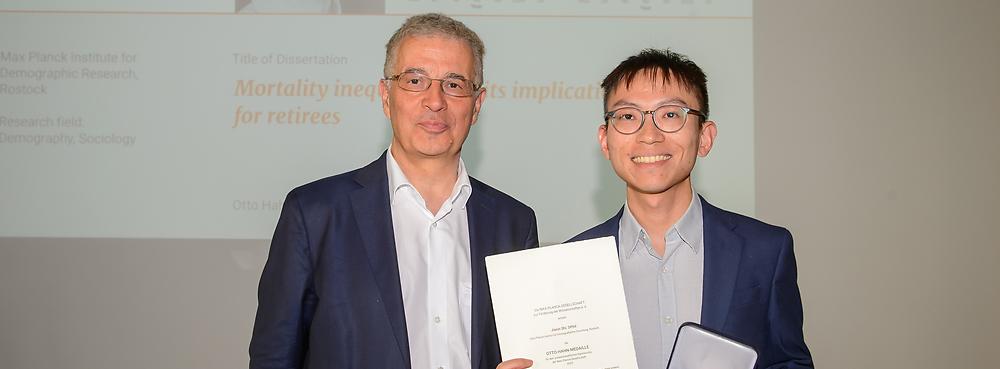Congratulations to the Leverhulme Centre for Demographic Science and Max Planck Institute for Demographic Research's DPhil student Jiaxin Shi for winning the Otto Hahn Medal in Munich for his doctoral thesis on 'Mortality Inequality and Its Implications for Retirees'.
The medal is awarded by the Max Planck Society to young scientists for outstanding scientific achievements. Jiaxin received the awarded at the annual meeting of the Max Planck Society on 12 June 2024.
In his winning thesis, Jiaxin presented four studies on mortality inequality that advance the knowledge of how life expectancy differs across social groups and the implications for retirees. The results of his work show that the greater longevity of socially advantaged groups accounts for up to a quarter of lifetime pensions.
On receiving the award, Jiaxin Shi said 'I am thrilled and honoured to receive this year’s Otto Hahn Medal. This is recognition of not only myself but also my advisors and collaborators, who have taught me how to do research, and have kept inspiring and supporting me.'
The paper was ground-breaking in showing that traditional measures of inequalities are biased and overly reliant on average outcomes. Its main findings were:
- To link the sociological concept of stratification to age-at-death distributions, showing that these distributions are increasingly non-overlapping across income quintiles, even during periods of converging life expectancy.
- Demonstrating that the length of life spent in retirement is more equal across educational groups when actual retirement behaviour and re-entry dynamics are taken into account.
- Mortality inequalities, which lead to differences in the length of pension receipt across social groups, contribute to a substantial part of the overall lifetime pension inequality, even when pensions are assumed to be progressive.
Jiaxin is now a Postdoctoral Fellow at the Center for Demography of Health and Aging at the University of Wisconsin-Madison.
Find out more in MPIDR's news article.



